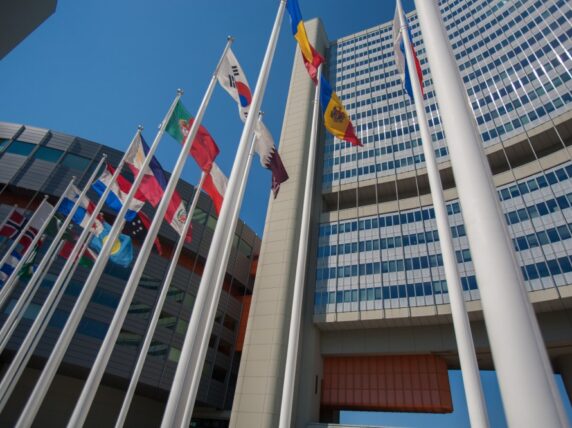Women and water
Water. You would hardly think that such a vital human resource is gendered: men and women – we all need it to drink, to wash, to grow our food.
But every day in our work we see how women’s dependence on natural resources, combined with their unequal power and decision-making within families, means that women are more affected by the impact of climate crisis. And that’s before you consider the impact of water scarcity on menstrual hygiene, and the water-borne diseases that directly affect women’s reproductive health.
Abuse and water
Dina Matheri, 56, is a widow living in the village of Kitongi in Migori County, Kenya. When she was married at the age of 12 she was well aware that one of her household responsibilities as a young bride was to ensure there was enough water for the household to use every day.
The closest water source to her new home was a natural spring one kilometre away, which was used by households from three other villages. There was enough water for all the villagers, though it was vulnerable to contamination by human activity.
Subscribe to our newsletter
Our weekly email newsletter, Network News, is an indispensable weekly digest of the latest updates on funding, jobs, resources, news and learning opportunities in the international development sector.
Get Network NewsTwenty years later the water supply started to decline, and conflicts arose over access to the spring. And since the flow of water was very slow, it might take each person as long as four or five hours to collect the water they needed for the day.
Dina and other women, young and old, would wake up as early as 4am to fetch water, leaving men sleeping and their young children unattended. “My daughter in-law would leave her toddler as she went for water early in the morning and the young child would cry to exhaustion,” says Dina.
But instead of thanks the result was family conflict, with husbands feeling that they were being neglected, and physically abusing their wives – accusing them of meeting with other men on the pretext of looking for water.
The abuse that women and girls are exposed to comes from their communities as well. Walking alone to the water source makes women and young girls very vulnerable to men taking advantage of darkness to sexually abuse them. Young schoolgirls given the job of collecting water after school risk being lured into relationships with young men offering to escort them to the water source late in the evening.
Development work starting with women
At Send a Cow we recognise the central role that women have in smallholder farming in east Africa. Sixty five percent of the farmers we work with are women, because research shows that women can be powerful agents for change (not least in mitigating the effects of climate crisis), and they are more likely to invest any income earned into their family’s future.
You don’t know what the problems may be unless you ask the questions; we conduct careful analysis at the start of projects to identify different gender needs. To empower women, we have developed facilitation training that is properly gender-responsive, and a Transformational Household Methodology workshop for individual households that has proved to be highly effective in shifting the power relationships and share of workloads within households.
The practical effects of fixing water
In September 2020, the second phase of Send a Cow’s Enterprising Migori project included work to conserve and improve nine water sources in the area, including Dina’s spring at Kitongi.
Trees were planted as part of the regeneration work, and safety has been improved. At Kitongi, the works in collaboration with the local community, the office of the chief, and the Ministry of Water & Environment have protected the water source and channelled the supply into a pipe.
The faster water flow has greatly reduced the amount of time it takes to fill water containers: long queues and crowding at the water point are gone, and the installation of a solar-powered light means that young girls leaving school late in the evening can collect water safely.
To ensure that the water source continues to be well managed after the end of the project, Send a Cow helped to establish a community water committee to manage it: Dina is vice-chairperson of the committee and is determined to ensure that Kitongi spring will be sustainable.
I am happy that I can now go for water at any time of the day and it takes a shorter time to fill a bucket.
Dina Matheri, Kenya
Well-designed projects can have a far-reaching effect on women’s lives – and on a whole community.
Category
News & views


